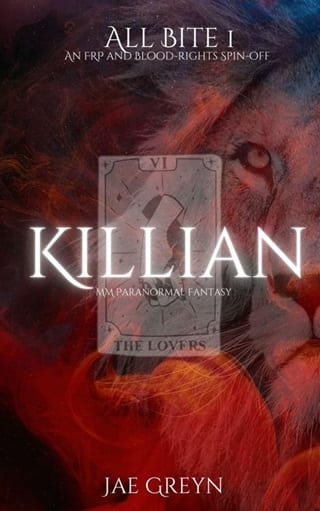Chapter 39Emir
Chapter 39 Emir
I drew a lungful of hot, dusty air and squeezed myself inside the antique shop. It felt more like a poorly organized storage room than any sort of retail facility, with only narrow paths left between fully stocked shelves that seemed to lean in, threatening to crush the poor soul who attempted to venture into the depths of its belly. Decades of cigarette smoke hung in the air, permeated in every piece of war time memorabilia, cups, saucers, jewelry, weapons, clothing, art, and anything else old you could think of. What had once been categorized seemed to have blended, forming an impenetrable wall of clutter.
‘People love to treasure hunt,’ Dad used to say. He believed hiding things behind other things encouraged digging and as people spent time uncovering forgotten items, they felt more invested in the things they found. I’d never fully accepted his theory, unless it was based on the lack of oxygen making the customers delirious and therefore more prone to bad decisions.
The deep breath I always took before entering the shop was designed to last me all the way through to the back door, which led to a small back room. The back room was surprisingly bare, as if my father had decided to use the shop as the storage and the back room as his quiet retreat. Cousin Burak, who smoked like a chimney and wasn’t bothered by the smell of the shop, had taken over standing behind the counter—or mostly sitting at the small outdoor table, smoking, and gossiping with the next-door shop owners. I’d prohibited smoking indoors, making me one of their favorite conversation subjects. What was wrong with Emir? Why was Emir such an uptight jerk? He thought I couldn’t hear him from behind the broken window.
I didn’t care if he thought I was possessed by an evil spirit. I had much bigger problems to worry about. Like how to catalogue and sell the infinite number of items around me. Tourism was going through a dip that was either seasonal or permanent. I had no space to do proper inventory. I’d talked to the other shop owners along our steep, cobblestoned street, trying to get them onboard with having a shipping container blocking half the street for several weeks, but was met with resistance. Ali next door had agreed to one week, but it had to be the week he was on holiday. And when I hinted that I’d later need to bring the container back, to restock the shop after renovations, he gave me a murderous look. I was lying anyway. It would take me far more than a week to get to the bottom of the inventory. But I had to start somewhere.
Janie would know what to do, I thought. She’d approach this with that sunshiny attitude of pure belief, and she’d get them all onboard. She’d make it happen. Except she wasn’t here, and she didn’t speak Turkish, and I had to get her off my mind, at least for now. Thinking of her every day hurt too much. I’d emailed her once to let her know I’d arrived safely, and she’d replied with a short update at her end. Everyone was fine. Josh was back to his old school. Janie was helping to organize the Art Deco Gala. Another movie production was considering Napier. She’d cut together a short video pitch for the documentary. Keeping busy, she said. Trying to move on. I didn’t like it, but I couldn’t tell her not to.
Flying back to Istanbul had ripped me in half. I felt lost and lonely in my own city, like I was living in a parallel reality. Only half alive. Half awake, waiting to open my eyes and be back on the farm, staring out into the impossibly green hills. Seeing Janie in her muddy boots, swinging a bucket in her hand. Smelling the grass and earth and chicken poop.
I tried not to feel anything. If I could reduce my time in this city to a series of tasks, only engaging my analytical brain, I’d survive. That’s why I found it so hard to write to her. If I began telling her how I felt, how much I missed her… No, I couldn’t go there. I needed to function. I needed to problem solve. And time needed to get on my side and somehow fast forward to the next bit, because I couldn’t stand this one.
The bell over the door jingled. I recognized my father’s signature cough before I even turned around.
“No customers?” He grumbled.
He’d taken it on himself to check in every day, even if he insisted that I was in charge, and he had no energy to help.
“Not right now. It’s hard for them to see the entrance through Burak’s cigarette smoke.” I cast a disgusted look at the doorway, behind which my useless cousin was currently wasting the day away.
“You can say that again.”
Since his diagnosis and treatment, Dad had become a vocal anti-smoking campaigner, one who did it with a raspy smoker’s voice. It felt good to agree with him on something for a change.
“I was thinking of getting a shipping container to help sort out the items,” I said, on a whim. Maybe he’d understand. “But the neighbors are not onboard.”
Dad looked around, confused. “Sort out what?”
I sighed. “The excessive number of… things that make it impossible to walk around the shop.”
“This is not a gallery! People don’t want to walk around an antique shop. They want to dig and find treasures. We have the best selection of—”
“No, we don’t! And even if we did, nobody would know. There are things in here you don’t even know.”
“ Safsata! I know this shop like the palm of my hand!”
I squeezed my hands into fists, trying to stop myself from getting sucked into yet another argument. But the temptation was too great. “If you did, you’d noticed that I’ve already taken away a vanload of stuff.”
Dad’s head whipped around as he tried to determine if I was bluffing. “No! I mean… I did notice you moved the hat rack, and the pipes…” He kept turning around, clearly struggling to take in everything.
This is what happened. When old things sat in the room for too long, they became part of the environment. Everything blended and nothing caught your eye. Nothing called out to you.
“Anyway,” he grumbled on. “A shipping container is like an invitation for the thieves. You carry things in and out of the shop, out in the open like that... things will start disappearing.”
“Are you sure? Most of the stuff is so worthless people might mistake the container for a recycling bin and new things will start appearing instead of disappearing.”
Dad harrumphed, unimpressed by my exaggeration. But something about my own words niggled at the back of my mind. Something I’d overlooked. It took another ten minutes of mindless arguing with my father to bring it to the surface, but when it did, blood seized in my veins.
Someone had put something in Janie’s house.
Nothing was taken because there wasn’t anything in the house they wanted. Not when she wasn’t home. Because they wanted her. Someone had installed a hidden camera. I had no evidence, yet I knew it with inexplicable certainty.
I didn’t believe in psychic powers, but I believed in intuition—your subconscious mind examining shreds of evidence, fleeting images, and memories, working faster than your conscious mind.
“I have to go,” I told Dad, mid-sentence.
I gathered my things and left the shop, wading through Burak’s cloud of smoke, telling him I was meeting with someone. I wasn’t. I was heading straight back to Cem’s house, which was my permanent address since I’d given up my rental apartment to save every penny. I had to call Janie. I needed to hear her voice. I needed to know she was okay.
Coming back here had been a mistake.
I strolled down the hill towards the nearest tram stop. With Cem not around, I didn’t want to use our driver. I knew he didn’t mind, but I had my pride. I could feel the first pangs of the old headache radiating across my forehead and winced. It was coming back. The incredible gift Janie had given me would be taken away by this polluted city and dusty pile of antiques. And the frown on my face that made stray cats and startled tourists scurry out of my way. I stopped for a moment, trying to relax my face and shoulders, rolling them back. I rubbed my thumb between my eyes, imagining her fingers on my skin, closing my eyes for a moment.
When I opened them, I saw Janie. She was at the other end of the sloping street, a tiny human shape walking up the hill with a green backpack on her shoulders.
I blinked and rubbed my eyes, convinced that I was hallucinating. I’d pictured her so many times, it must have messed with my brain. But I’d never imagined her like this—like a tourist in my town, chin raised in the air as she browsed the shops along the street, slowly approaching me.
 Fullepub
Fullepub 



